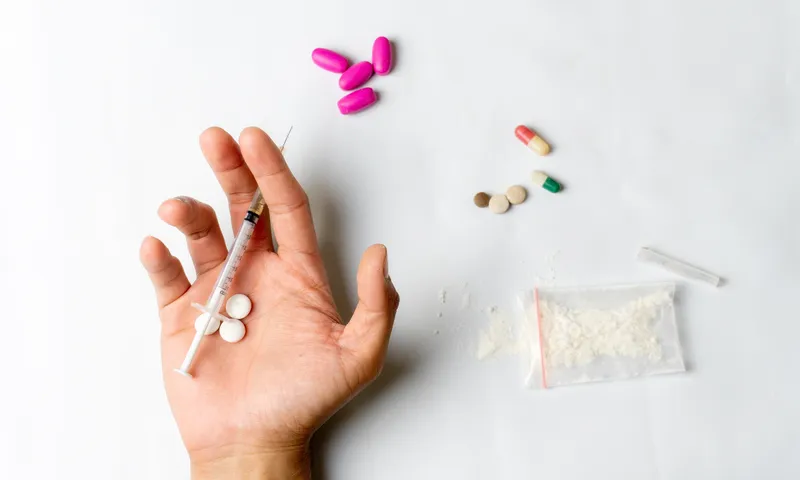Can Drugs Cause Bipolar Disorder

Did you know that people with bipolar disorder are seven times more likely to develop substance abuse problems than most individuals? This is a startling statistic, and if you or someone you know has bipolar disorder, you might wonder how this mental health condition is linked to drug abuse and whether drugs can cause bipolar disorder. This article will explore this question by describing what bipolar disorder is, its risk factors, connection to drug use, and how to manage this often-debilitating mental health condition.
What Is Bipolar Disorder?
Bipolar disorder is a mental health and mood disorder that can significantly affect a person’s life, including their relationships, education, work, physical well-being, and more. It causes extreme shifts in mood, energy, activity, and thinking, especially if misdiagnosed or left untreated. A person with bipolar disorder experiences two main phases:
Mania (or hypomania, which is less disruptive):
High energy
Excited
Distracted
Irritable
Rapid talking
Little need for sleep
High confidence
Risky decision making
Depression:
Loss of interest in enjoyable activities
Sadness
Fatigue
Hopelessness
Bipolar I: This is the most severe type of bipolar disorder and is only diagnosed in a person when they have experienced at least one manic episode at some point in their life. Individuals may also experience depression, which can range from mild to severe.
Bipolar II: Depression must always be present to diagnose Bipolar II, which may, in rare cases, progress to Bipolar I. Hypomania can also occur in this type of bipolar disorder.
Cyclothymic Disorder: This form of bipolar disorder is characterized by milder mood swings and shorter episodes of hypomanic and depressive symptoms. In rare cases, it can also progress to bipolar I or II.
What Are the Risk Factors for Bipolar Disorder?
There are various reasons why someone might develop bipolar disorder, with genetics being the strongest known risk factor. For instance, having a close relative such as a parent or sibling with the condition increases your own risk. In addition to genetics, variations in brain function, neurotransmitter imbalances, traumatic life events, abuse, grief, and more can also trigger this mental health condition.
Often, a combination of these risk factors triggers the condition. It also should be noted that being at risk or predisposed doesn’t mean you’re destined to develop the disorder, and many people never do.
Can Drugs Cause Bipolar Disorder?
Even though individuals diagnosed with bipolar disorder are more likely to abuse legal, prescription, or illegal substances, drugs do not typically directly cause bipolar disorder. However, people already experiencing symptoms may often try to self-medicate.
Additionally, when risk factors such as genetics or altered brain chemistry are present, drug abuse can be an influential contributor that can trigger or unmask bipolar disorder and cause symptoms to appear earlier in life than they otherwise would. Drug abuse can also worsen existing symptoms. While long-term use of certain drugs, like cannabis, cocaine, opioids, or alcohol, has been linked to psychosis, mood instability, and bipolar-like mood swings, it’s extremely rare to cause true bipolar disorder in individuals without prior vulnerability.
How to Treat Bipolar Disorder?
Although there is no cure for bipolar disorder, numerous treatment options can help manage an individual’s symptoms. Some examples include the following:
Therapy (e.g. Cognitive Behavioral Therapy)
Medications (e.g. mood stabilizers, antipsychotics, and antidepressants such as Abilify and Carbolith)
Social support systems (e.g. involvement of family and friends, peer support groups)
Mindfulness practices (e.g. meditation, breathing exercises)
Regular sleep schedule
Stress reduction
Mental health education
Avoiding or quitting drug use
Hospitalization
Electroconvulsive therapy (ECT)
Depending on the severity of your symptoms, the type of disorder, and your life circumstances, what you need most may vary. It’s crucial to try what works best for you under the close supervision of your healthcare provider. When appropriately treated, bipolar disorder doesn’t have to prevent you from leading a fulfilling, meaningful, and successful life.


